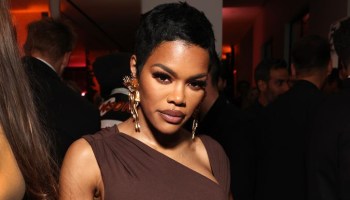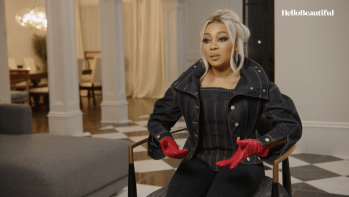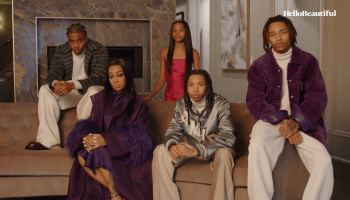Republicans in the House have decided to opt out of the debate on the “Pain Capable Unborn Child Protection Act,” a bill that would ban almost all late-term abortions because of objections from their own party, including some GOP women. It’s being reported that at the closed door meeting, things got so tense that congressional aides were kicked out and that many of those members were against the requirement that women who wanted an abortion because they were raped have to get a police report.
We all know how tough it is for victims of rape to come out against their attackers. Sixty-eight percent of rape cases are not reported by the police. So getting a police report so you can have your own choice to terminate your pregnancy has got to be devastatingly hard.
MUST READ: SHE’S THE LAW: State Abortion Laws & How They May Affect You
The hold-up of the debate wrecked the GOP’s plan to align with the “March For Life” in Washington, D.C. and the 42nd anniversary of Roe v. Wade, the case that granted the right to legal abortion to women in the United States. This should be a celebration, but we’re still facing limited access to that right. The GOP and their delay on this debate is clear evidence of this.
Three years after Roe v. Wade, in 1976, Representative Henry Hyde and the Congress deliberately banned the use of federal funds for abortions for women who get their health care insurance through Medicaid and we all know that decision disproportionately impacted low-income women, women of color and immigrant women. And for the last 38 years, we’ve been dealing with the blow.
It is the Hyde Amendment that forces low-income women to wait longer than they should while they seek ways to cover the cost of an abortion. Waiting means that you’re getting further along in your pregnancy. And by the time you’re able to get the abortion, guess what? It’s late-term. And while supporters of abortion rights have built a network of organizations that raises funding for these women, it is not enough. Other restrictive federal and state laws, such as waiting periods, hospital admitting requirements and clinic shutdowns add to the difficulty low-income women face when seeking an abortion.
Today, on the anniversary of Roe v. Wade, we do have something to celebrate: policymakers, jurists, medical professionals and activists who have fought these 42 years to make the Court’s decision a reality. We applaud President Obama’s inclusion of abortion rights in his State of the Union remarks on Tuesday, re-enforcing his belief that “every woman should have access to the health care she needs.” We also applaud the reintroduction of the much-needed Women’s Health Protection Act, a bill that will protect the rights promised under Roe v. Wade. These are important steps forward, even thought the GOP is determined to keep us stepping backwards.
It’s 2015, high time that low-income women be included, rather than excluded in the legal protections of Roe v. Wade. It is not enough that the President advocated abortion rights for all women, if federal and state policymakers continue to restrict those rights. It is not enough that the Women’s Health Protection Act was reintroduced, if the critical issue of funding still gets ignored.
There will be a lot of new anti-choice bill likely coming from this Congress and we have to fight against them. and we can’t forget the women who have already been left behind. Now is the ideal time to proclaim that all women are equal under Roe v. Wade. Now is the time to build a grassroots movement of women and men who will fight to make Roe v. Wade a reality for all women.
What do you think beauties? Sound off in the comments below. And Happy 42 Anniversary of a woman’s right to choose!
RELATED STORIES:
Real Talk: Nicki Minaj Opens Up About Her Abortion As A Teen
Check Your Facts: Study Finds Most Abortion Clinics Are Not In Black Neighborhoods
CHICK CHAT: I’ve Had Multiple Abortions, But I’m Not A Serial Killer





















